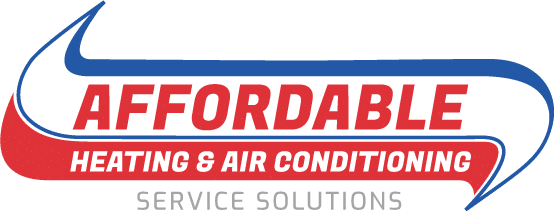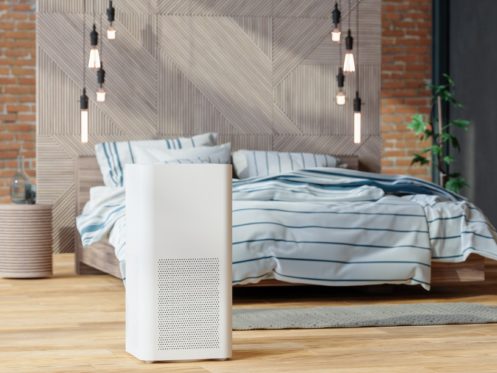When it comes to managing your indoor air quality, it’s hard to understand all the options and how they fit together. You hear about needing a dehumidifier over the warmer months, but there’s also a lot of chatter about air purifiers. Learn the difference between the two, what each provides for your home, and what you may want to consider.
Humidity Control Versus Purification
Dehumidification is the process of removing moisture from the air. The Environmental Protection Agency suggests the ideal indoor humidity is between 30% and 50%.
Purification is the process of removing various contaminants from the air. This may include mechanical purification, the use of ionization, as well as technologies to render various contaminants inert.
While dehumidification will affect the contaminants in the air, purification does not generally impact humidity. Let’s look at why each is important while managing your indoor air quality.
Why Control Humidity?
The amount of moisture in the air is critical for keeping your family healthy and reducing cleaning and maintenance in your home. When the humidity is too low, you’ll experience dry skin and extra dust in the air, your furniture may crack, and plants may wither.
Conversely, too much moisture in the air is just as troublesome. This will cause various airborne contaminants to thrive and grow, leading to musty smells, allergic and even asthmatic reactions, plus moisture damage in your home.
Benefits of Purifying the Air
Purifying your air, on the other hand, is dealing with the contaminants in the air, independent of the humidity. This helps remove dust particles and allergens to help your family experience better health. It also extends the life of your air filter and reduces the frequency of HVAC repairs.
Some air purifiers will help eliminate some household odors, making living with kids, teenagers, or pets a little more pleasant. Further, various purifiers also help remove many household chemicals, such as volatile organic compounds, or VOCs, contained in countless household products.
Types of Purifiers
There are generally four categories of air purifiers: HEPA filters, carbon filters, negative ionization, and UV light. Some purification units use a combination of these technologies.
HEPA filters are a denser filter than your standard HVAC air filter. While air passes through it, the filter will remove particles as small as 0.3 microns, which is small enough to catch over 99% of contagions.
Carbon filters use activated charcoal to absorb odors, gases, chemicals, and VOCs. Many purifier devices that claim to eliminate odors use some form of activated charcoal.
Negative ionization is the process of distributing negatively charged ions into the air. These ions attract airborne particles, and as they collect, they fall from the air due to the collective weight. This is a great way of purifying your home’s air, even when not all the air moves through your unit.
Ultraviolet, or UV, light has been shown to render many kinds of particles inert. This includes various forms of biological contaminants, such as bacteria and viruses.
Types of Dehumidifiers
There are three different types of dehumidifiers widely available on the market. The different technologies have different energy consumption rates but also pull different amounts of moisture from the air.
The most common is the refrigerant dehumidifier, also called a compressor dehumidifier. This uses the most amount of energy, but it has the highest potential for removing moisture as well. The refrigerant dehumidifier works in the same way as an air conditioner, with cold coils condensing moisture from the air.
Desiccant dehumidifiers use a special material that absorbs water from the air as it cycles through the system. It then uses a heated air stream to dry the moisture from the desiccant wheel to allow it to continue working.
Peltier dehumidifiers are similar to refrigerant units in that they rely on a cold surface to condense moisture from the air. In this model, it simply uses electricity to create a temperature difference in the Peltier module rather than using a compressor.
Which Is Better?
Is a dehumidifier or a purifier better for your home? That depends on your particular situation. Air purifiers are useful throughout the year, whereas dehumidifiers are generally only used during the warm months. The best way to determine what is most beneficial for your home is a proper evaluation from an indoor air quality expert.
Affordable Service Solutions Heating & Air Conditioning brings comfort to Richmond residents throughout the year. Our team provides full indoor comfort solutions, including a variety of indoor air quality options, along with heating and air conditioning installation, maintenance, and repair. Call to schedule your consultation with one of our expert indoor air quality specialists today.
Services We Offer include:

